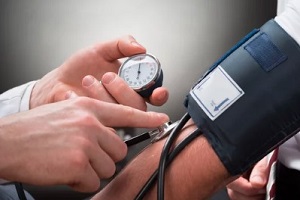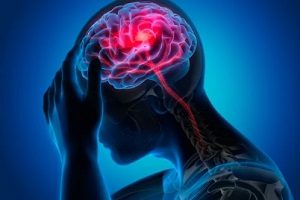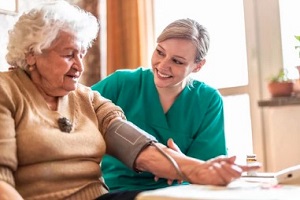 You don’t need to be a genius to look out for your health. You just need to be vigilant. High blood pressure is a condition that afflicts nearly half of all adults in America.
You don’t need to be a genius to look out for your health. You just need to be vigilant. High blood pressure is a condition that afflicts nearly half of all adults in America.
Given its prevalence, everyone should be on the lookout for its signs and symptoms so they can get treatment early on instead of waiting until something devastating happens.
Fortunately, you have come to the right place to learn how to identify hypertension signs. But first, let’s make sure everyone is on the same page when it comes to high blood pressure itself.
What Is High Blood Pressure?
Your blood pressure is the pressure and force of blood pushing against your arteries, veins, and heart’s walls. High blood pressure, also known as hypertension, is when this pressure has reached a critical mass exceeding recommended levels that begins harming your arteries’ walls.
Although your blood pressure is expected to fluctuate throughout the day depending on how active you are, if it remains consistently high for too long, it will begin harming your heart. And that’s where it becomes a severe issue.
As a result, hypertension puts you at risk of cardiovascular diseases, including heart attacks.
 Given that strokes are the leading cause of death among US adults, the importance of bringing high blood pressure under control is essential. Moreover, specific demographic populations need to be more vigilant of it than others.
Given that strokes are the leading cause of death among US adults, the importance of bringing high blood pressure under control is essential. Moreover, specific demographic populations need to be more vigilant of it than others.
For instance, men are more likely to develop high blood pressure than women. Moreover, research has noted that hypertension is more common among non-Hispanic black adults than anyone else.
How To Know You Have Hypertension?
Getting medical attention early on can help you get better treatment and offset the risks of a stroke, and prove easier on your wallet. So, watch out for the following symptoms:
- Blurry or double vision
- Weariness or fatigue
- Nosebleeds
- Trouble breathing
- Lightheadedness or even fainting
- Severe headaches and migraines
- Nausea or vomiting
If you are experiencing any of these signs of hypertension, you should consider scheduling an appointment with a reliable medical provider at your earliest convenience.
What To Do If You See Any of These Symptoms in Yourself?
 All of the symptoms previously mentioned are a direct result of hypertension. When you experience a spike in blood pressure, the force leads to arteries in your nose bursting and triggering nosebleeds.
All of the symptoms previously mentioned are a direct result of hypertension. When you experience a spike in blood pressure, the force leads to arteries in your nose bursting and triggering nosebleeds.
Similarly, the abrupt decrease in pressure triggers lightheadedness and even fainting since insufficient blood flows to your brain without any warning.
Given this grave reality, if you experience any combination of these symptoms, it is time to seek medical care without delay.
Moreover, you should consider adopting healthy lifestyle habits and choices to bring your blood pressure back under control. Here are a few:
- Exercise: Regular exercise gives your heart the strength to pump out more blood at a higher pressure with less effort. So, training it to cope with hypertension helps you reduce your blood pressure.
- Limit Alcohol: Alcohol consumption can narrow arteries, increasing blood pressure. Therefore, it is vital that you try to reduce its consumption, if not quit it altogether. Stick to one to two drinks per day at most.
- Relax and Destress: Unsurprisingly, stress is responsible for spiking your blood pressure levels. Therefore, do whatever you must to reduce it in your life. This could include extricating yourself from stressful situations and setting boundaries in life. Find time to engage in relaxing activities, like walks in nature or viewing art.
- Watch Out for Salt: The sodium in salt packs and collects inside blood vessels and leads to high blood pressure. Therefore, you will need to watch your salt intake and aim for foods and dishes low in salt. Also, be careful with processed foods and check labels since they are also relatively high in sodium content. Research shows your sodium intake is directly responsible for your blood pressure.
- Quit Smoking: Cigarette packs have warned consumers for years about the risks associated with smoking. Consider quitting now because nicotine acts as a catalyst for increasing blood pressure.
Get Medical Attention If You Think You Have High Blood Pressure
 Besides instituting essential lifestyle changes, you need to seek medical attention. Depending on your blood pressure levels and your other health issues, you may need to start medication immediately.
Besides instituting essential lifestyle changes, you need to seek medical attention. Depending on your blood pressure levels and your other health issues, you may need to start medication immediately.
Alternatively, even if you do not need urgent treatment, preventative health care can be cheaper and more effective in the long run.
If you are concerned that you may have hypertension, contact the Imperial Center Family Medicine immediately. We have professional and experienced medical professionals who can help you get your high blood pressure levels under control.
